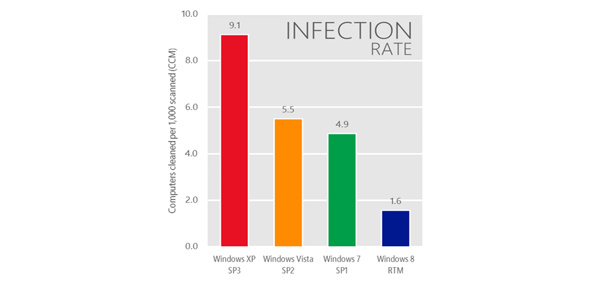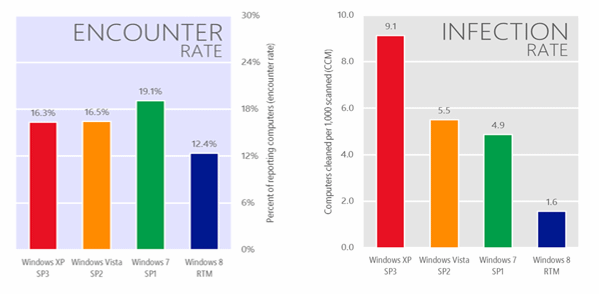
On April 8, 2014, support for Windows XP officially ends. After this date, the ageing operating system will no longer receive security updates, non-security hotfixes or free/paid assisted support options and online technical content updates.
Essentially, this means that as new bugs are discovered that affect Windows, Microsoft will not prepare or distribute fixes for them for Windows XP.
On the second Tuesday of every month, Microsoft releases security patches that are typically downloaded and installed automatically by Windows computers. You may be familiar with this "Patch Tuesday" schedule. The next day however - "Exploit Wednesday" - is when attackers will target unpatched machines (that have not yet gotten the monthly updates) after they dissect Microsoft's updates and attempt to identify the bug that Microsoft is fixing.
If any security vulnerability is discovered that affects an array of Windows operating systems that also includes Windows XP, then this is a serious problem for people still running Windows XP after April 2014, because cybercriminals will become aware of the security bug and Windows XP will not be updated to fix it.
As it stands, Windows XP is already considerably less safe than newer iterations of Microsoft's consumer OS. Statistics show that the malware encounter rate across Windows XP, Windows Vista, Windows 7 and Windows 8 is roughly the same, but the infection rate (when the malware attack successfully infects the system rather than being blocked by some means) is much higher for Windows XP - six times higher than Windows 8.

So if you are still clinging to Microsoft's ageing operating system, then maybe it is time to move on to a new Windows, or a completely different operating system altogether?
Written by: James Delahunty @ 2 Nov 2013 1:40
